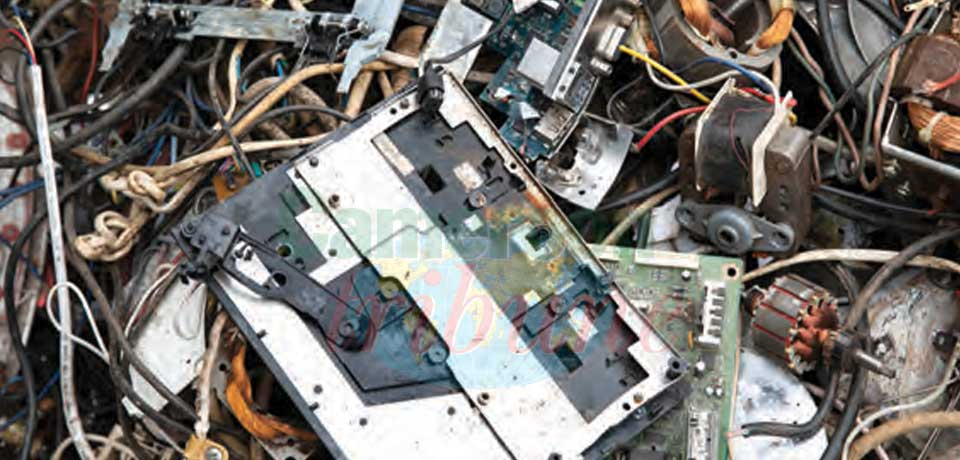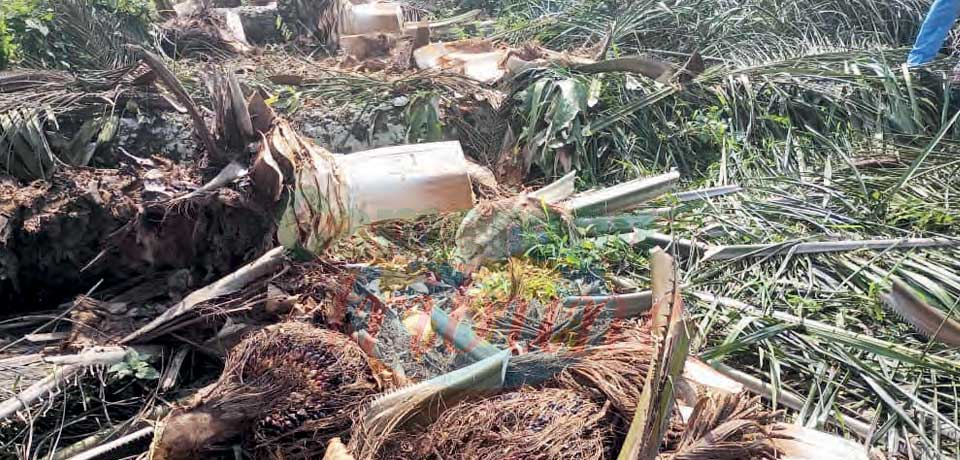Electronic Waste Management: Growing Cause For Concern
- Par Dilian WELLENG
- 13 Apr 2021 15:42
- 0 Likes

With the increase in the importation of electronic equipment, many are wondering what happens to them when they become obsolete given its enormous environmental hazards.
Joseph Tsopkeng is an electronic repair technician who owns a shop at the Tam Tam weekend neighbourhood in Yaounde. His workshop is filled with electrical appliances which have been abandoned by its owners. It is a huge quantity for him to manage given that the 34-year-old Cameroonian had spent over 20 years of his life in electronic repairs. Though hazardous, Joseph has no choice than to dump the unusable parts of the electrical equipment outside or better still, sell parts like motherboards to passers-by. “I can sell a kilogram of motherboards for FCFA 500,” he stated but confessed that he is ignorant of where it goes to.
Households, another major generators of Waste of Electrical and Electronic Equipment (WEEE) deal will it differently. Some use electricians as dumping grounds. Very few manage to get back their electronic equipment from technicians and the few who do so, end up polluting the atmosphere with them or stockpiling them in their homes. This the case of Precious Ngwaleh, a university student residing in Yaounde. He tells us that he has created a small shelve in his house where he dumps small electronic equipment like phones and head sets. “I have about 10 cell phones in that cupboard and I don’t even know what to do with them,” he stated before opining that he is planning to dump them in the dustbin careless of its environmental hazards.
In the same vein, second hand shops, companies, hospitals, schools, and other sectors of the economy who are main generators of WEEE are faced with the same challenge of disposing them. The challenge is deeper given that the importation of electronic equipment with well carved lifespans keeps gathering steam. According to the Ministry of Environment, Nature Protection and Sustainable Development (MINEPED), “Between 2006 and 2013, an average of 153, 900 tons of electrical electronic equipment were imported to Cameroon with 60% of the equipment in category 1 (big household equipment) and the average quantity of WEEE per household in urban centres stood at 120kg constituting 97.5% of category 1 equipment”. The same estimates hold that in Cameroon, the urban areas possess 77,461 tons of WEEE deposits spread as follows; 76,664 tonnes from households, 395 tonnes from students and 402 tonnes from professionals representing 43% of the public sector and 57% of the private sector. This quantity, which according to the Ministry is till underestimated as it grows every passing day with evolving technology, automatically becomes a major cause of concern if not well managed. Pundits hold that most at times, they end up in the streets or in the hands of informal exploiters who master little or nothing about the management of WEEE.
Dangers
Environmentalists opine that WEEE contains toxic components that are dangerous to the environment and human health such as m...
Cet article complet est réservé aux abonnés
Déjà abonné ? Identifiez-vous >
Accédez en illimité à Cameroon Tribune Digital à partir de 26250 FCFA
Je M'abonne1 minute suffit pour vous abonner à Cameroon Tribune Digital !
- Votre numéro spécial cameroon-tribune en version numérique
- Des encarts
- Des appels d'offres exclusives
- D'avant-première (accès 24h avant la publication)
- Des éditions consultables sur tous supports (smartphone, tablettes, PC)














Commentaires